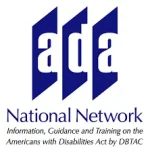
1. What is pet screening?
Pet screening is basically a background check on a tenant's pet dog, cat, or other animal. It is a way for landlords to get information about a prospective tenant's pet prior to approving their rental application or prior to an existing tenant getting a new pet. The kind of information landlords commonly ask for through pet screening includes:
- The pet's breed, size, weight, gender, and age
- How long the tenant has owned the pet
- Whether the pet is housebroken
- The amount of time the pet will be home alone every day
- The pet's medical history, including vaccinations, health issues, and the name of the pet's veterinarian
- A history of the pet's behavioral problems such as noise complaints, aggression, or biting
- References from other landlords
Many landlords do pet screening themselves by asking tenants questions during the application process or by having tenants fill out pet application forms. Recently, however, it has become common for landlords to use a third-party pet screening company to do the screening for them. Tenants are instructed to create an online profile with the screening company and answer a number of questions before their pet will be approved.
3. Can a landlord require pet screening for assistance animals?
Landlords cannot require pet screening for assistance animals. People with disabilities who use assistance animals can live with those animals as a "reasonable accommodation" for their disabilities.[1] Assistance animals are not pets and are not subject to the same rules and requirements as ordinary pets. Requiring pet screening for assistance animals violates fair housing law.
Assistance animals include:
- Service animals: animals that work, assist, or perform tasks to help a person with a disability; and
- Emotional support animals: animals that provide emotional support that lessens the effects of a person's disability.
Pet screening can violate fair housing laws in a number of ways. For example:
- Pet screening companies often require that tenants complete special forms or follow special procedures. Under fair housing law, requests for reasonable accommodations—including requests to live with assistance animals—don't have to be made in any particular way and cannot be conditioned on the completion of special forms.
- Sometimes pet screening companies require that tenants agree to conditions and terms like a waiver of liability or mandatory arbitration. Under fair housing law, a housing provider cannot condition approval of a reasonable accommodation on an agreement to special terms or conditions.
- Pet screening companies often ask tenants for information that is not necessary to process a request for an assistance animal. They may ask for the tenant's specific diagnosis or for unnecessary medical records. They may ask for the animal's breed or size, or for photos, vaccination records and microchip information. None of this information is required to process a reasonable accommodation request. In fact, asking for some of this information is unlawful.
If asked by a landlord to complete pet screening, there are a few things you can do:
- Explain to the landlord that your animal is an assistance animal and not subject to pet screening requirements.
- Show the landlord this blog, and/or the resources linked below.
- Contact DREDF for advice. Phone: (510) 644.2555; Email: info@dredf.org
- File a complaint with the California Civil Rights Department: https://calcivilrights.ca.gov/complaintprocess/
Here are some additional resources:
- U.S. Department of Housing and Urban Development, FHEO Notice: FHEO-2020-01, Assessing a Person's Request to Have an Animal as a Reasonable Accommodation Under the Fair Housing Act (January 28, 2020): https://www.hud.gov/sites/dfiles/PA/documents/HUDAsstAnimalNC1-28-2020.pdf
- Joint Statement of the U.S. Department of Housing and Urban Development and the U.S. Department of Justice [on] Reasonable Accommodations under the Fair Housing Act (May 17, 2004): https://www.hud.gov/sites/dfiles/FHEO/documents/huddojstatement.pdf
- Emotional Support Animals and Fair Housing Law (California Department of Fair Employment & Housing): https://www.dfeh.ca.gov/wpcontent/u...nalSupportAnimalsandFairHousingLawFAQ_ENG.pdf














